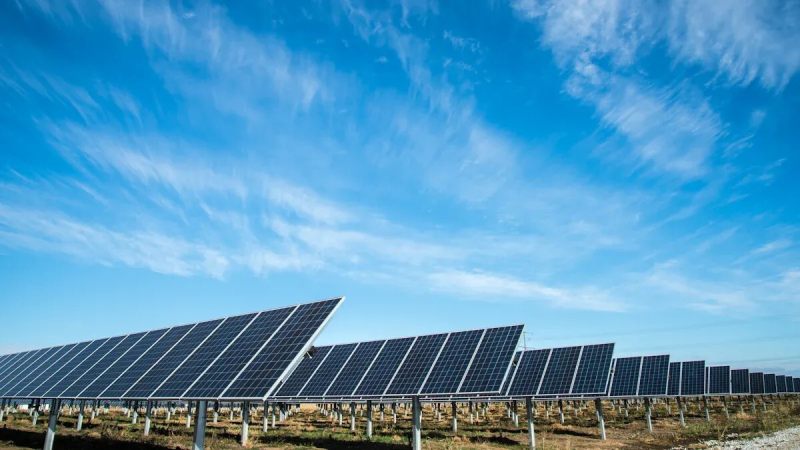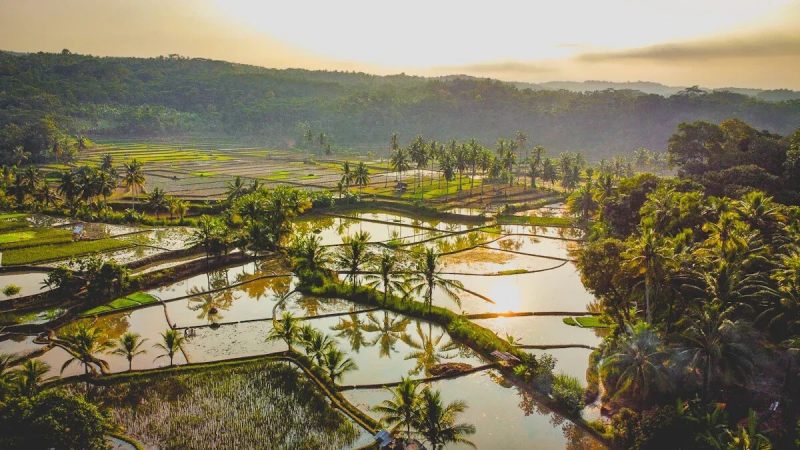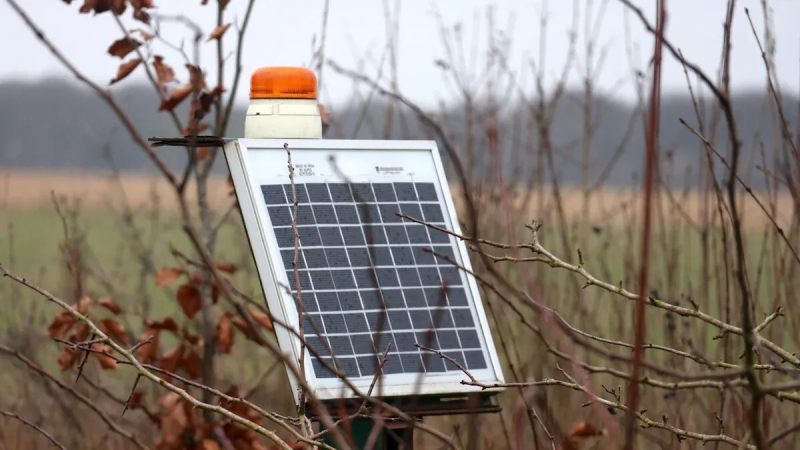

Image Source: unsplash
Choosing a solar pump inverter for irrigation can save you money. It also helps protect the environment. Recent studies show these systems use solar energy for pumps. This makes them work better and last longer than old ways. You will pay less for energy and make less pollution. When you think about switching, look at your water needs. Think about the local weather and the first cost. Canroon helps by giving solutions that fit your farm. They help you make a smart choice.
Key Takeaways
Solar pump inverters help farmers save a lot of money. They can lower energy bills by half or more. Farmers can use the saved money for crops and farm upgrades.
These systems do not need much care. Farmers only need to clean and check them sometimes. This saves time and money on fixing things. Diesel pumps need more repairs than solar pumps.
Solar energy helps lower carbon emissions. This is good for the planet. Solar systems can cut CO₂ by almost all. This helps keep nature healthy.
Solar irrigation gives steady water in faraway places. Farmers do not need the power grid. Crops get water even in hard-to-reach areas.
Farmers should think about how much water they need. They should also check how much sunlight their area gets. Good planning helps get the most from solar irrigation.
Solar Irrigation System Overview

What Is a Solar Pump Inverter?
You may wonder what makes a solar irrigation system work. A solar irrigation system uses sunlight to power water pumps on your farm. The heart of this system is the solar pump inverter. This device changes the direct current (DC) from solar panels into alternating current (AC) for the pump. You do not need to rely on the power grid or diesel fuel. The solar irrigation system gives you a clean and steady energy source.
A solar pump inverter helps you use the sun’s energy in a smart way. It matches the power from the solar panels to the needs of your pump. This means your solar irrigation system can run smoothly even when sunlight changes during the day. You get more control and better results for your crops.
How It Powers Irrigation
The solar irrigation system starts with solar panels. These panels collect sunlight and turn it into electricity. The solar pump inverter takes this electricity and makes it useful for your water pump. When you turn on your solar irrigation system, the inverter checks how much power the pump needs. It then sends the right amount of energy to the pump.
You can use a solar irrigation system in many places. If you live far from the city, you can still get water for your crops. The solar irrigation system works well in remote areas. You do not have to worry about fuel deliveries or power cuts. Your solar irrigation system gives you water when you need it.
Canroon has strong experience with solar irrigation system solutions. They design systems that fit your land and water needs. If you want to save money and help the planet, you can trust Canroon’s solar irrigation system technology.
Tip: A solar irrigation system can help you grow more crops with less effort. You can spend more time caring for your farm and less time worrying about water.
Benefits of Solar Pump Inverter for Irrigation

Cost Savings
Using a solar pump inverter can help you save money. Many farmers pay a lot for electricity or diesel every year. When you use solar pumping systems, you spend less right away. For example, if your farm pays $20,000 each year for electricity, you could save $10,000 to $14,000 every year. Over 20 years, you could save $200,000 to $280,000. These savings let you spend more on your crops and make your farm better.
Solar panels can lower electricity bills by 50% to 70%.
You do not have to worry about fuel prices going up.
Solar energy helps you keep your energy costs steady.
Switching to solar water pump systems gives you more money to use. You can grow your farm or buy new tools. As energy prices go up, you will save even more with solar-powered irrigation. This makes solar pumping systems a smart choice for many farmers.
Low Maintenance
Solar pumping systems are easy to take care of. You just need to clean the solar panels and check the inverter sometimes. Most of this work is simple and anyone can do it. You do not need to change oil or fix engines like with diesel pumps. This means you spend less time and money fixing things.
Solar water pump systems need basic cleaning that anyone can do.
Diesel pumps need lots of repairs and cost more over time.
Solar water pumps have fewer parts that move, so they last longer. They break down less often. You can spend more time growing crops and less time fixing your pump. This helps your irrigation work well all year.
Tip: Clean your solar panels often to keep your solar pump inverter working well.
Environmental Impact from Renewable Source of Energy
Solar pumping systems use energy from the sun. This helps protect the environment. Solar water pumps do not make harmful gases like diesel or electric pumps. This lowers your farm’s carbon footprint and helps fight climate change.
Solar plants help lower CO2 emissions a lot. For example, solar-powered farms make only 0.48 tons of CO2 each year. Regular farms make 9.29 tons. This means you can cut your emissions by 8.82 tons every year. Solar pumping systems also help local plants and animals. They help native plants grow, give homes to wildlife, and make soil better. You can see up to 90% more plant types on land with solar panels. These systems also help save water by keeping soil wet and stopping evaporation.
Note: Using a solar pump inverter is good for the environment and helps make energy cleaner.
Reliable Water Supply in Remote Areas
If your farm is far from the city, solar pumping systems give you water when you need it. You do not need the power grid or fuel deliveries. Solar water pumps work well in places without power, so they are great for remote farms.
Canroon’s solar pump inverter technology helps your irrigation system work even when sunlight changes. You get water for your crops when you need it most. This helps you grow healthy crops and get more from your farm.
Solar pumping systems help manage groundwater by giving water where it is needed.
You can use solar-powered pumps to get water from wells, rivers, or ponds.
With a solar pump system, you can grow your farm in new places. You do not have to worry about getting energy. This gives farmers in remote areas new chances.
Automation and Versatility
Solar pumping systems do more than save energy. You can set up timers and sensors to water your crops. This means your crops get water at the right time. You do not have to turn the pump on and off yourself.
Solar pump inverters change the power to fit your pump.
You can use solar water pumps for drip, sprinkler, or flood irrigation.
Solar-powered pumps work with groundwater or surface water.
Automation helps you save water and energy. You can grow more crops with less work. Solar pumping systems change with the sunlight, so your irrigation stays steady. This makes solar irrigation a good choice for many farms.
Callout: Solar pumping systems give you control and flexibility. You can focus on your farm and let the technology do the work.
Limitations of Solar Pump Inverter Systems
High Upfront Cost
Solar powered water pumping systems cost more to set up. The price comes from solar panels, inverters, and other parts. Most of the money is paid at the beginning. This can make it tough for some farmers to choose solar energy. They may want to save money later but find it hard to pay now.
Here is a table that shows how much each system costs per hectare:
You can make these costs lower with help from the government. Many farmers use grants, tax breaks, and loans to help pay for solar energy. These programs let you spend less at the start and save more later.
Tip: Ask local groups about grants and loans for solar powered water pumping systems. This can help you pay for your system.
Weather Dependency
Solar energy needs sunlight to work well. If you live where it is cloudy a lot, your irrigation system may not work as well. You might get less water for your crops when there is little sun. Farmers have seen a 30% drop in irrigation when it is cloudy for a long time.
"In places with changing weather, farmers have seen a 30% drop in irrigation when it is cloudy for many days."
Weather changes can make solar panels work less, especially on cloudy days.
Heavy rain can cause too much water, which hurts solar panels and crops.
You should plan for these changes to keep your irrigation working.
Some solar powered water pumping systems use special controllers and batteries. These help your pump work when sunlight is low. You can also use strong materials and anti-freeze parts to protect your system in bad weather.
OEM Solar Pumps use smart controllers and batteries for low sunlight.
Strong materials help in hot weather.
Anti-freeze parts protect in cold weather.
Space for Solar Panels
You need enough room to put solar panels for your irrigation system. If your farm is small or crowded, it may be hard to find space. Solar panels work best in open places with lots of sun. Trees, buildings, or hills can block sunlight and lower your energy.
Check your land before you buy a solar system. Make sure there is a clear spot for the panels. If you do not have enough space, you may need fewer panels or other choices.
Note: Planning well helps you get the most energy from your solar panels.
Water Resource Management
Solar energy lets your pump run all day. This can make you use too much water if you do not watch your irrigation. Low costs mean you might pump more water than your crops need. This can hurt groundwater, especially in dry places.
Solar irrigation systems can use too much groundwater if not watched.
Pumping all the time can use up water resources.
Good water management is needed to protect your land.
Here is a table that compares water management and other features:
Callout: Use smart irrigation to avoid wasting water. This keeps your farm healthy and helps the environment.
Technical Knowledge Needed
Solar pump systems need some skills to set up and care for. You may need to learn how to clean panels, check the inverter, and fix small problems. Some farmers find this hard if they have never used solar energy.
You can take classes to learn these skills. For example, the Solar PV and BESS Operations & Maintenance Tech 1 Training teaches you the basics. This class is for people who want to work with solar energy and batteries.
Canroon gives help and training for their solar pump systems. You can ask for help if you have questions or need repairs. This makes it easier to use solar energy on your farm.
Tip: Learning basic solar care helps you keep your irrigation system working well.
Choosing Solar Pumping Systems for Irrigation
Assessing Water Needs
First, look at how much water your farm needs. Think about what your crops need in each season. Check the size of your fields and the kind of soil you have. Some crops use more water than others. Solar pump inverters help match water flow to your schedule. This stops you from wasting water or energy. When you know your water needs, you can pick the best solar system for your farm.
Evaluating Local Sunlight
Solar irrigation systems work best with lots of sunlight. See how much sun your land gets every day. Farms in hot, dry places need systems that handle heat and save water. Cold or snowy areas need solar equipment that works in low temperatures. Rainy or humid places need waterproof panels and safe parts. You can use waterproof solar panels and strong pump parts to protect your system. Regular checks help your solar energy system work well.
Tip: Put your solar panels where nothing blocks the sun. This gives you the most energy for your irrigation.
Budget Planning
Planning your budget helps your solar irrigation project succeed. Include costs for site work, electrical upgrades, and permits. Professional design adds 3-5% to your costs but helps your system work better. It may help you get incentives too. Many farmers use special loans for renewable energy projects. You can also:
Think about the first installation cost, tax breaks, and future maintenance.
Start with a small solar system and add more as you see results.
This step-by-step plan helps you manage risk and learn how solar energy works on your farm.
Maintenance and Support
It is easy to keep your solar irrigation system working with good support. Canroon offers many services to help you. Here are some of them:
You can always ask Canroon for help with your solar energy system. Their team helps you keep your irrigation running well and your energy use efficient.
Solar pump inverters help you save money on energy. They use clean power from the sun. You might have some problems with them. The first cost is high. You need sunlight for them to work well. You also need to learn new skills to use them. Canroon gives you help and training when you need it.
"The solar irrigation market will grow quickly. New technology and rules make it easier for you to use solar power on your farm."
Pick your system by checking your water source. Think about how big your farm is. Plan your budget before you buy. Talk to experts to get advice. This helps you find the best mix of cost, how well it works, and caring for the planet.
FAQ
How long does a solar pump inverter last?
Most solar pump inverters work well for 10 to 15 years. You can make them last longer if you clean the panels and check the system often. Good care helps you get the most from your investment.
Can I use a solar pump inverter with my old water pump?
You can use a solar pump inverter with many types of pumps. Check if your pump matches the inverter’s power and voltage. Ask Canroon or a local expert for help if you are not sure.
What happens on cloudy or rainy days?
Your solar pump inverter will still work, but it may give less power. You might get less water on days with little sun. Some systems use batteries to store extra energy for these times.
Is it hard to install a solar pump inverter system?
You do not need special skills to use the system, but you should ask a trained installer for help. A professional can set up your system safely and make sure it works well.
How do I keep my solar pump inverter working well?
Clean the solar panels every few weeks. Check for loose wires or dirt on the inverter. If you see a problem, call Canroon or a service expert. Regular care keeps your system strong.
Sign up for updates
